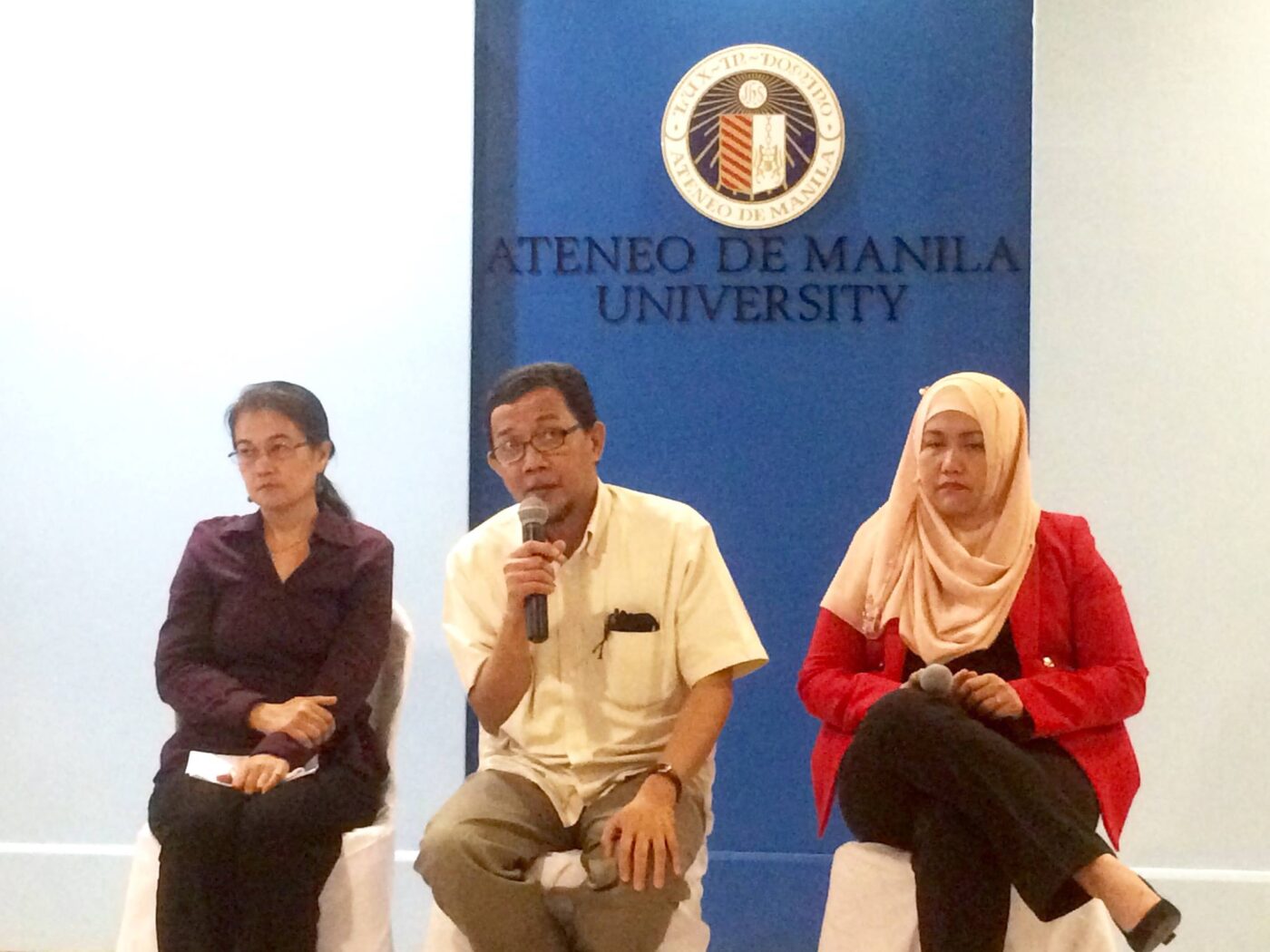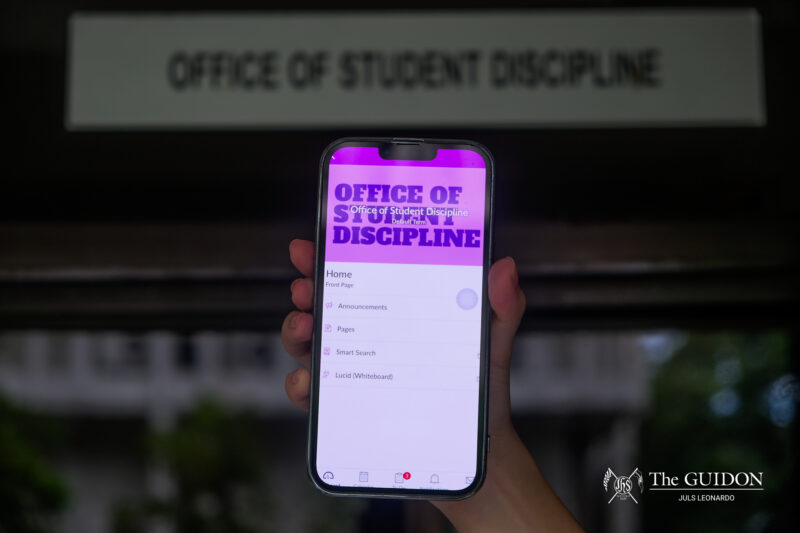IN LIGHT of the Marawi siege, representatives working with various Mindanao-based sectors emphasized the importance of confronting the causes of violent extremism plaguing the region at a forum last Saturday, July 8.
The Ateneo de Manila University, along with the Society of Jesus Social Apostolate, organized “Towards Peace in Mindanao: A Listening Forum on the Marawi Crisis” in the hope that “a more genuine understanding of the conflict can lead to a more inclusive method to address the cycle of violence at its roots.”
Philippine Province of the Society of Jesus Provincial Superior Fr. Antonio Moreno, SJ, stated that the complexities of the crisis are “grossly misrepresented” because of the people’s tendencies to “jump into quick solutions and put guidelines and timetables” on the situation.
“We need to listen…listen to the people who are on the ground, listen to the people who are connected with the various groups that are moving to [address the issue] in Marawi,” he said.
President Rodrigo Duterte declared martial law in Mindanao on May 23 as a response to the siege led by the terrorist Maute Group. The declaration is supposed to end on July 22, pursuant to the maximum of 60 days provided by the Constitution. However, the President may ask Congress for an extension. The military is expected to give a recommendation to President Duterte whether an extension is needed.
Socioeconomic oversights
Young Moro Professionals Network Convener on Women and their Children Yasmira Moner spoke of the “deep-seated sociocultural prejudice and bias towards politics” that the Philippine government has failed to address in the ongoing peace negotiations.
Moner said that a sociocultural track should complement the political track of negotiations in the Bangsamoro peace process.
“There are more socioeconomic challenges that really empower the ideology of violence of these local, homegrown terrorist organizations. Violence, martial law, [and the] military approach will only breed more extremism in our midst and will only create more violence,” she added.
Moner, who is also a faculty member of the Mindanao State University, emphasized the importance of thinking about the future of Mindanao’s youth and guarding them from exploitation by extremists.
“The trauma is still there. They are afraid to go to school,” she added.
Meanwhile, Moro Islamic Liberation Front’s Bangsamoro Development Agency Chairman Dr. Saffrulah Dipatuan said that there are inaccuracies being reported by the media, such as the claim that Islamic educational institutions called madrasahs are breeding violent extremism.
“No one could say that the Al-Azhar University [in Cairo, Egypt] is a hotbed of violent extremism. The truth is that violent extremism is a relatively new phenomenon in the Muslim world,” he said.
He explained that the reason behind the rise of extremism and the creation of groups such as the Bangsamoro Islamic Freedom Fighters was the “erosion of trust and confidence of the capacity of government to honor its signed agreements with the Moro liberation fronts.”
The road ahead
According to peace development worker Milet Mendoza, what is happening in Marawi is “a preview of more difficult times ahead.” She lamented the government’s tendency to “belittle and underestimate” the enemy.
Mendoza also emphasized the importance of providing people the opportunities to make positive change such as humanitarian work. She reiterated that any effort that aims to establish long-term peace must have support from the community and that any development engagement must consciously be a healing process.
“It is very tragic that these people only understand the language of firepower, and this can only be responded to by firepower. We have to do everything in a way that there will be a healing process…that there is hope in the future for them,” she added.
Meanwhile, Autonomous Region of Muslim Mindanao Executive Secretary Atty. Laisa Masuhud Alamia tackled the response of different government agencies.
She mentioned the Department of Education’s intervention in the registration of displaced Marawi students in receiving schools around the country. Some students have relocated to Luzon, 567 of them in the National Capital Region.
She also mentioned the Department of the Interior and Local Government’s ocular inspection for the possible site of a temporary morgue in Marawi.
Alamia also spoke of ways to help the people in Marawi, focusing on mobilizing the government to “counter the impact of ideology that motivates and unifies radical Islamist extremism and violence,” and empowering credible Muslim voices.
On the other hand, University of the Philippines Institute of Islamic Studies Professor Julkipli Wadi argued that “while listening is important, questioning is a bit more important.”
“We have to deepen our understanding of our faith because it is here where we hope we are able to [address] the contradictions that we face,” he said.







